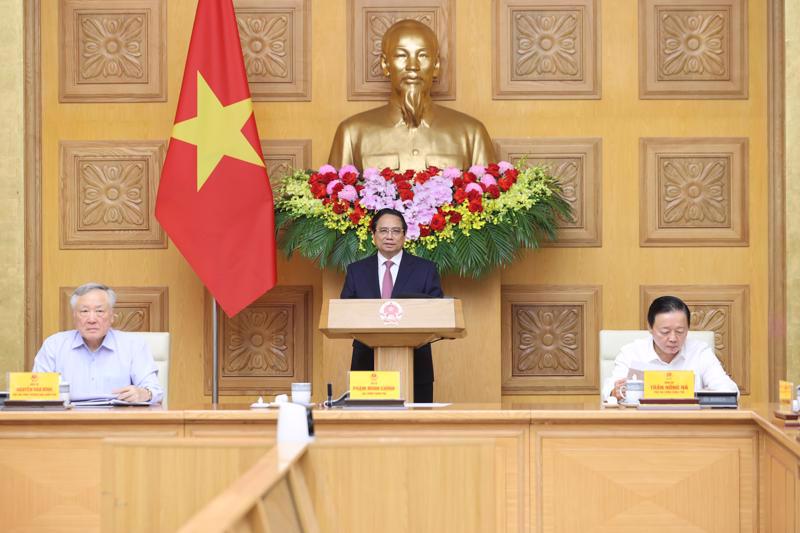Prime Minister Pham Minh Chinh, Head of the Steering Committee for Building the Private Economic Development Project, chaired a meeting between the Government's Standing Board and the Steering Committee on April 14 to gather further opinions and refine the project that will be submitted to the Politburo for approval.
During the meeting, discussions focused on the draft reports, submissions, and the draft Politburo Resolution on private sector development.
Key discussions also focused on the scope and target subjects, the position and role of the private sector, tasks and solutions—particularly legal mechanisms and policies for private sector development—and the role of State management agencies, business associations, and industries in fostering private sector growth.
Delegates emphasized the important role of the private sector in production chains, supply chains, and distribution chains. They also analyzed incentive mechanisms and policies related to science and technology application, human resources, land, finance, and administrative procedures for the private sector.
PM Chinh concluded the meeting by highlighting several key points for finalizing the project for timely submission to the Politburo.
He stressed that the project must adhere closely to the resolutions and conclusions of the Party Central Committee and the Politburo, as well as the writings and directives of General Secretary To Lam, including his closing remarks at the recent 11th Plenum of the Party Central Committee.
The PM emphasized that the project must respect reality, be firmly grounded in reality, originate from reality, and use reality as a benchmark. It should combine theoretical foundations with practical evidence, domestic experience, and international lessons.
According to the PM, the project must ensure continuity, foster development, and achieve breakthroughs. Private sector development should be situated within the broader context of the country's renewal, development, and breakthroughs; aligned with the implementation of the three strategic breakthroughs (institutional reform, infrastructure development, and human resource development); and integrated with the execution of the 'strategic quartet' (comprising breakthroughs in science, technology, innovation, and national digital transformation; streamlining the political system's organization and apparatus; developing the private economic sector; and international integration in the new context).
The PM underscored the importance of clearly defining the position, role, significance, and contributions of the private sector, as well as identifying bottlenecks and constraints hindering its development from realizing its distinct potential, outstanding opportunities, and competitive advantages. He also emphasized the need to clarify the relationship between the private sector and other economic sectors.









 Google translate
Google translate